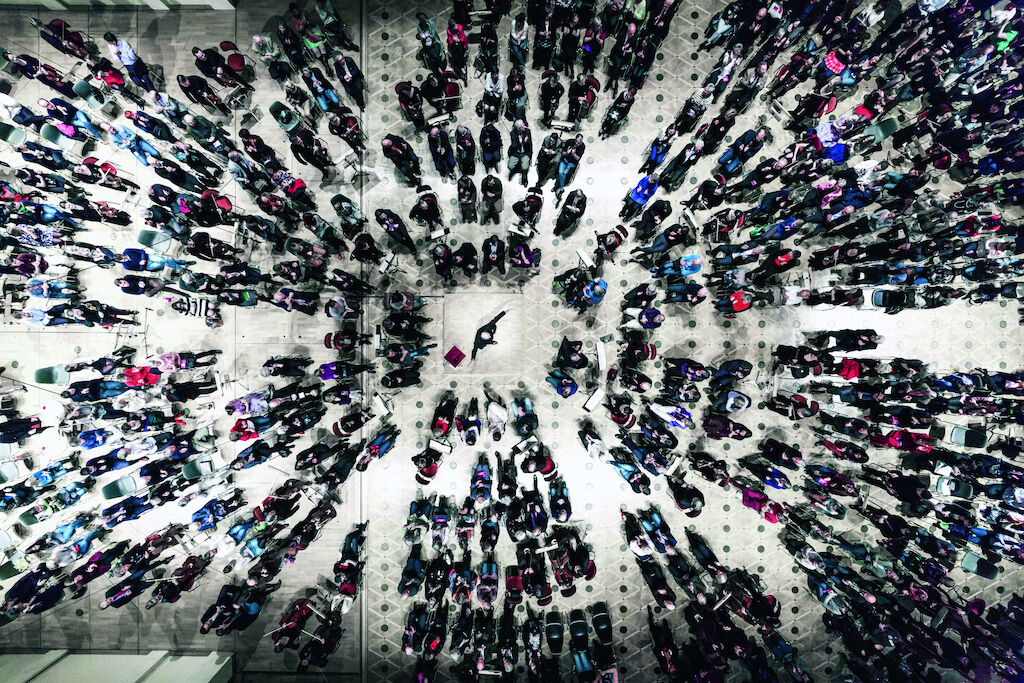Never before have markets experienced changes as quick or disruptive as they are today. Fast-paced technological progress, growing environmental and social awareness, and the megatrends of globalization and digitalization present extreme challenges for companies. At the same time, the growing transparency in markets allows people to compare products and services more easily than ever before, thereby totally changing consumers’ research and buying behavior.
These circumstances place tough demands on companies and their ability to adapt. And the battle for survival affects everyone — from market leaders to underdogs, from blue-chip companies to family-owned businesses and startups, from manufacturers to service providers.
On top of all that, a singular focus on shareholder value is forcing companies to grow faster and achieve higher margins. Especially for listed companies, quarterly reports and short management cycles create pressure to succeed that can be met only with a leadership approach that optimizes precision timing. But companies and brands will be viable only if they strike a long-term balance between economic stability and creative adaptability.
So the key to survival is to keep up with the fast pace and implement leadership tools suited to this setting. But thus far, no consulting approach has been able to foster viability for companies in all areas. Existing approaches operate with an analytical business mindset that focuses primarily on optimizing finances and structures while largely neglecting the entrepreneurial-creative dimension (classic business and management consulting). Or they focus exclusively on creative input or superficial image optimization, a one-sided view that falls short of securing overall long-term business success (agency models, mostly in the communication and innovation sector).
The main question is: when the pace of change in the operational business setting continues to accelerate, what can a CEO, entrepreneur, or brand decision-maker focus on to be successful?
Brands create viability.
Brands can be the key to viability and sustainability. This approach focuses on the idea of a brand-driven leadership. It defines brand as the essence of a business idea, expressed not only through a product and/or service but also through people (employees, customers, other stakeholders) and in the communication between the brand and people. At the same time, a well-managed brand is also an inexhaustible source of product and service innovation that leads to new business models, and thus safeguards the long-term viability and sustainability of a company. A brand is highly dynamic and by definition has the potential to continue to grow beyond itself and, as a consequence, develop the entire business.
The classic lead agency approach is history.
The idea of a company contracting a lead agency or consultant to which all other consultants and agencies are subordinate is passé. The world is too complex, and its development too dynamic, for one service provider to be able to cover top-quality competence in every field. That’s why the classic lead agency approach has become obsolete. The key today is to create a suitable environment for a brand that involves all the relevant consultants, agencies, and service providers, and thus empowers clients in their sovereignty as brand leaders. It’s all about enabling smooth interactions among the many partners involved by providing expertise, infrastructure, and facilitation.
A good consultant is a brand expert and a brand empathizer.
Brand consultants help brand managers guarantee long-term strategic leadership and management of the brand, and develop new business ideas, products, and services based on it. In doing so, they don’t look at just one dimension, medium, or discipline; they see themselves as responsible for the whole 360 degrees. Because they think systemically and often recognize the long-term consequences for a brand earlier than others, they can help clients avoid negative consequences.
Brand consultants facilitate open leadership systems that focus on collaboration between the agencies involved. They expect and encourage an open mindset and an inner willingness to switch perspectives, see potential in those with opposing viewpoints, and work constructively with them. If a brand consultant wants to be successful in growing a brand today, he or she needs to be an expert, an empathizer, and an explorer.
Create systems and foster collaboration.
This level of transparency and collaboration requires shared targets in qualitative goals as well as in financial objectives. It also requires the full commitment of all partners. Innovative agency networks can break down agency silos by consolidating governance, defining joint financial goals for the entire network of agencies/partners (for example, one P&L), and working alongside one another in offices with common workspaces to foster collaboration and minimize conflicting interests.
Through the seamless cooperation of all partners, it’s possible to create a dynamic environment that connects each agency and discipline in a way that leads to positive synergy. This fosters a culture of pure concentration on the issues key to the success of the company or brand at the center of the engagement. It also increases the freedom for companies to act by enabling faster communication and leaner decision-making processes, thus lowering transaction costs.
A brand needs a home, a place.
To make this type of collaboration possible, a place needs to be created — a home for the brand complete with full infrastructure — that serves as the definitive source of all information relevant to the brand. In this physical and/or virtual room, the brand is the stage where collaborative work takes place and where brand participants can access all relevant information.
A basic version of this space is a digital platform — a brand management system. The advanced version turns this digital space into a physical brand room with a specific setup that works in real time by providing knowledge, fostering collaboration and a seamless workflow, and fulfilling every information need that may arise to sustain growth and put the brand in a leadership position.
_Arne Brekenfeld is CEO of MetaDesign.
Photo of Konzerthausorchester Berlin by Frank Löschner.
